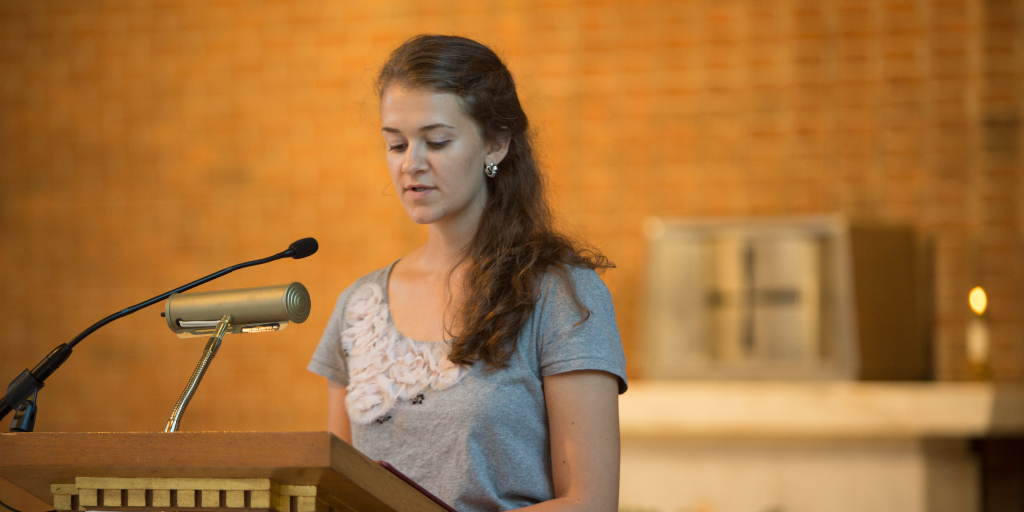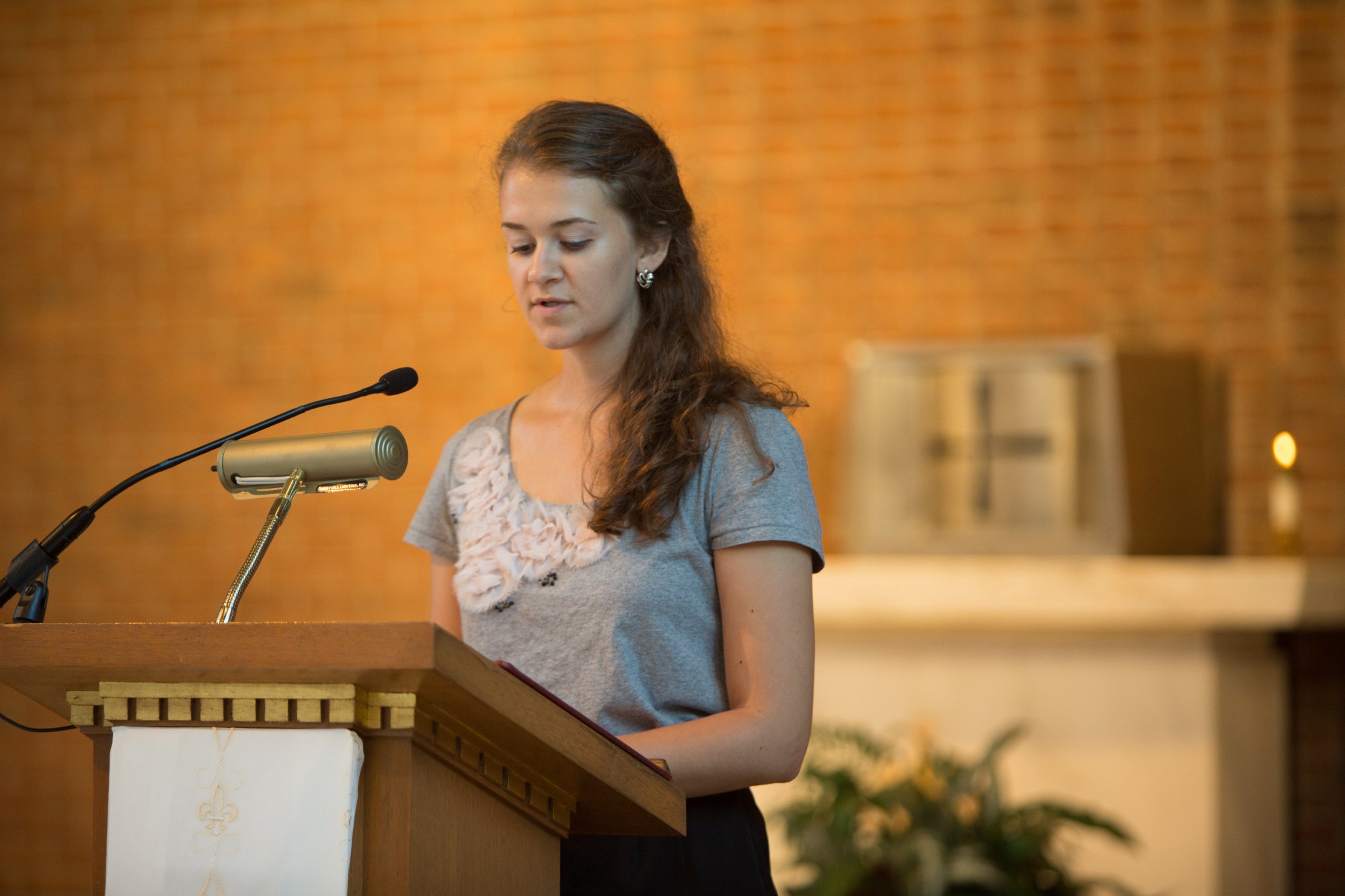
Jane Korvemaker examines Pope Francis’ motu proprio on lay ministries, explaining what it means for Catholic parishes.
Pope Francis issued a motu proprio on January 11 – what does it mean for us? Will these changes destroy Church tradition? Before we delve into the very recent change in canon law regarding the ministries of acolyte and lector, we’re going to define some terms here.
Canon law: The Code of Canon Law is an official compilation of Church laws promulgated for Latin rite (or Eastern rite churches) within the Catholic Church. Essentially, it is the rules which govern how the church functions. We’re dealing wiMotu proprio:th Canon Law within the Latin rite (there are several different Catholic rites), and the canon we’re discussing (230) is in the section found here.
Motu proprio: Latin, essentially meaning ‘by his own,’ indicating on his own initiative, typically in reference to the Pope.
Orders: In current Church teaching, Orders are conferred by a bishop onto a man through the sacrament of Holy Orders (ordination). Before 1972, Orders (though not necessarily ordination) was conferred on those entering into study for the priesthood (via the Minor Orders).
A Lay Person’s Backgrounder
We’re taking a stroll in history back to when something called the Minor Orders existed, which is prior to 1972 (possibly 1973, depending on implementations). Some of you may well remember them (porter, exorcist, lector, and acolyte, in order of conferral); they were Orders that were officially conferred on boys/men who were in preparation for the priesthood (as stepping stones, as it were). After these came the Major Orders (subdeacon, deacon, and priest, again in order of conferral).
In 1972, Pope Paul VI issued his own motu proprio (the same type that Pope Francis issued on Jan. 11) regarding the Minor Orders whereby “it seems appropriate to review this practice and adapt it to today’s needs” (source), and in discussion with bishops and other experts, he issued a change in canon law regarding the Minor Orders. Namely, they would not exist as such any longer, but they would furthermore be called ‘ministries’ instead of ‘orders,’ and only two would be maintained universally: lector and acolyte. So it now looks like this:
- Acolyte & lector – now installed ministries, and not necessarily connected with ordination
- Porter & Exorcist – not universally used, possibly continuing under some bishops' conferences as installed ministries (also: this is not exorcists as we currently have common use in many dioceses)
- Subdeacon – gone, with responsibilities reassigned to acolyte and lector
However, these officially instituted ministries were still to be reserved only for men. Officially instituted is to be understood differently than people taking up the ministries when needed, or even temporarily assigned, in a local parish. To officially confer the ministry of acolyte or lector means to be particularly formed (that is, have had specific formation) and to take on the responsibilities that come with that official ministry, and be officially instituted by the bishop. They were sometimes called the stable ministries of lector and acolyte, indicating a degree of permanence. These are still requirements for those pursuing the deaconate and the priesthood (see canon 1035 §1).
To further illustrate this difference between an instituted ministry and general ministry, let’s look at the General Instruction of the Roman Missal (GIRM), 3rd edition. The Roman Missal is the book the priest says the prayers from at Mass and the General Instruction is what interprets and gives specific direction for what happens in liturgy. The GIRM states, “In the absence of an instituted acolyte, there may be deputed lay ministers to serve at the altar and assist the Priest and the Deacon,” (#100) and “In the absence of an instituted lector, other lay people may be deputed to proclaim the readings from Sacred Scripture” (#101). This shows that it is within our tradition that non-ordained women and men be called upon to serve as needed in these positions, but as an instituted ministry these have only been available to men up until the Motu Proprio from Pope Francis on January 11.
Does This Mean Women Deacons?
Short and easy answer: No. Given proper understanding of the history of the development of ministries here, it should be clear that it does not mean women will be deacons because of this change. That misunderstanding would be due to the assumption that the Minor Orders still exist. As Pope Francis has highlighted,
A clearer distinction between the attributions of what are today called ‘non-ordained (or lay) ministries’ and ‘ordained ministries’ makes it possible to dissolve the reservation of the former to men alone. (source)
To me, this indicates that we have a more thoroughly developed understanding of what ordained ministry and non-ordained ministry look like now that there have been decades of this being lived out universally in the Church.
So What Does This Change Mean?
It is from our Baptism into the royal priesthood of Christ that the gifts for the ministries of acolyte or lector are derived, not from ordination. Therefore, it rightly belongs to the faithful to be able to proclaim Scripture in liturgy (and associated duties) and to assist the deacon and priest at the altar (and associated duties) by virtue of their royal priesthood, which is conferred in the sacraments of initiation into the Church: Baptism, Confirmation & Eucharist.

Both Pope Francis and Pope Paul VI rooted these developments in the work of the Second Vatican Council (especially Sacrosanctum Concilium and Lumen Gentium), which renewed the Church’s deep tradition and understanding of baptism and the faithful’s role in the Church and in the world (amongst many other things). In doing so, they show how through the development of doctrine the Church maintains her faithful traditions while appropriately responding to the needs of the Church in the world.
Pope Francis noted this in his accompanying letter when he spoke of the needs of the Church as expressed by bishops and leaders in 2008, 2010, and 2019 at different Synods and gatherings. The struggles of the Church were brought forth and the Church listened, examined herself, and appropriately developed a way to meet the evangelical needs of the Church. As canon lawyer Cathy Caridi said in response a similar question ten years ago, “only those laws which have their basis in divine/natural law cannot be changed” (source), and so we see here that it is within the scope of the Church’s practice to adapt what is adaptable while maintaining her faithful tradition.
This change will take time to implement, as Pope Francis said, “It will be the task of the Episcopal Conferences to establish adequate criteria for the discernment and preparation of candidates for the ministries of the Lectorate or Acolytate” (source). At the very least, it will not be discussed at the Conferences until they are able to meet together again, and with COVID-19 still a big concern, this may or may not even happen in 2021. Until then, there is unlikely to be any changes at the parish level.
Copyright 2021 Jane Korvemaker
Image copyright 2017 Holy Cross Family Ministries
About the Author

Jane Korvemaker
Jane Korvemaker loves food, family, wine, and God (perhaps not in that order). She holds a Certificate in Culinary Arts, which pairs perfectly with her Bachelor in Theology. A former Coordinator of Youth Ministry, she writes from the beautiful and cold province of Saskatchewan, Canada. She works from home and takes care of her three very hard-working children. Jane regularly blogs at AJK2.ca.


.png?width=1806&height=731&name=CatholicMom_hcfm_logo1_pos_871c_2728c%20(002).png)
Comments